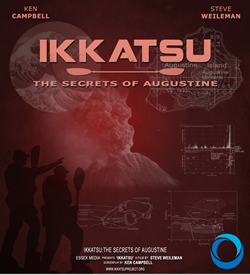The first men to cross the Olympic Mountains went from north to south, more or less. Beginning on the Elwha in the middle of what was (and still is), one of the harshest winters on record, the Press Expedition took almost six months to get to the other side. They left the interior by way of the Quinault River, then traveled back to Seattle by way of Aberdeen.
I am reading
Across the Olympic Mountains; the Press Party Expedition, 1889-90. It’s a book by Robert Wood, one I’ve read several times before, an account of a wilderness journey that would be hard to duplicate these days. There’s no place that would let you kill that much wildlife, for one thing. My, but those boys did like to shoot! Bear, elk, deer, grouse, fox, gray wolf and lynx, for example. All these in considerable quantities, and others besides. The quick triggers and matter-of-fact approach show the relationship these men had with the land in which they were traveling, better than anything else could do. Animals were for shooting. It was a different time.
One of the duties of the expedition was to keep a look out for any kind of mineral resources. There were many different business interests that were closely monitoring the expedition, quietly, for a variety of reasons. If some kind of mining opportunity existed out there, the expedition would have been hailed not only as a wonderful adventure, but also as an economic success. A rich vein of iron or tungsten, maybe copper or gold: mining speculators watched and listened for any news of wealth in them thar hills.
The following paragraph is taken from Wood’s book, page 68.
“… on several occasions Christie had tried panning in the Elwha. He tried again at the new camp, but had the same experience – there was nocolor. Evidently gold was not to be found in the Olympic Mountains.”
Can you imagine how different things would be if Mr. Christie had turned up a nugget or two? The ensuing gold rush would have swelled the populations of Aberdeen, Port Angeles and Olympia. Gold fever would have swept the peninsula, with all of the good, bad and ugly that a gold economy brings with it. Mountain encampments would grow into towns, and then cities, all bustle and life, until the day the gold played out. As in other places where boom had turned to bust, the exodus would be quick. Changes in population would be drastic and final, and the human landscape would have been unrecognizable one year to the next. The skeletons of ghost towns, dead towns, like Bodie in the Sierra and Monte Cristo in the Cascades, would be found today, scattered reminders of a lost civilization.
Besides, Christie was wrong. There is color in the mountains today. You can still see the white of the snow that still clings to the high country crags. The blue and green of the rivers and lakes, the yellow of sandy ocean beaches. Most of all, the green of the forest, where ancient trees still stand as they have for hundreds of years. All of the colors that really matter are there in abundance. The fact that there is no gold is a good thing, I am fairly sure.











